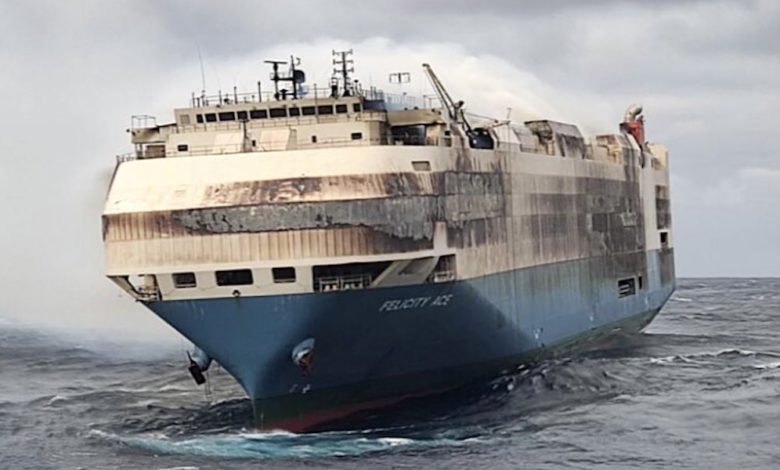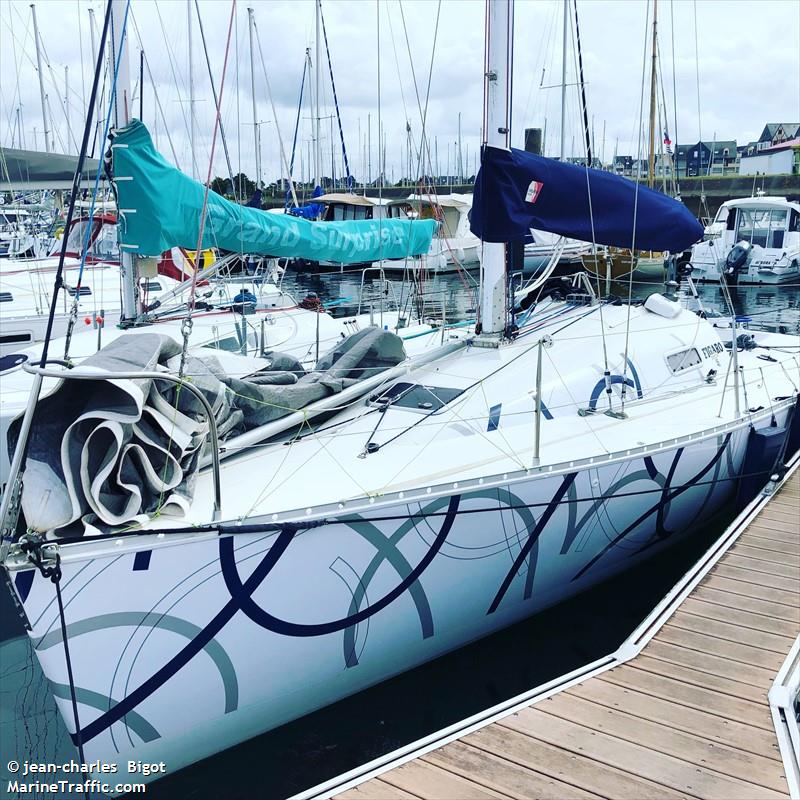Lessons learned from the Felicity Ace disaster

Jim Loftis, Ciara Ros and Joe Mallet from law firm Vinson & Elkins on practical steps for legal protection for customers and owner/operators.
In February, the 60,000 gt car carrier, Felicity Ace, caught fire and burned for over a week before recovery teams could board. After running aground while being towed to safety, the ship began to sink and is now two miles beneath the surface of the Atlantic Ocean. The crew safely abandoned ship but the loss of the vessel’s cargo, comprising close to 4,000 vehicles estimated at $330m and accounting for anticipated wreck salvage costs, the total damages arising out of the casualty are expected to fall just shy of $500m.
The casualty has direct legal and environmental impacts, but there are potential indirect legal consequences due to the disruption of vessel movements, the impact of delay, delivery of goods, and risk allocation under the contracts.
Maritime casualties, shipper considerations
Shippers customarily carry maritime insurance for cargo which will typically reimburse a shipper for cargo that is lost or damaged while being transported. However, it is important to ensure the insurance policy protects cargo to the desired level, paying particular attention to the deductible, its ‘on deck’ vs ‘packaged’ terms, its geographical limits and the basis of evaluation for the goods. It is equally important for shippers to consider whether the insurance policy also covers indirect losses. For example, losses due to the failure to deliver the goods to the customers on time (particularly for limited edition vehicles), supply chain issues such as those currently being faced as a result of the Ukraine-Russia conflict, any rush costs for replacement goods which would be exacerbated by supply chain issues and loss of profits if end customers are able to cancel due to delay, particularly for custom or specialist goods. These issues may be addressed by other insurance products, therefore a full suite of documents should be considered when shipping goods.
These are issues that arise not only out of marine casualties but due to delayed shipments. The assessment of risk prior to shipment should include a review of the contracts entered into with suppliers, end customers and any external service providers used to produce the goods, review of any insurance coverage, consideration and negotiation of risk allocation in the contract with the owner or charterer and consideration as to whether indirect losses will be covered (whether via insurance or in the contract package).
The total damages arising out of the Felicity Ace casualty are expected to fall just shy of $500m
Maritime casualties, owner/operator considerations
Salvage and wreck removal costs are significant and continue to spiral, particularly due to delays to existing works as a result of Covid-19 and are likely to continue as a result of the Ukraine-Russia conflict.
It is key to carry out a salvage operation expediently, but this must be balanced with safety, and a salvage operation can quickly turn into a wreck removal. Environmental risks are a concern for any owner dealing with salvage/wreck removal, as they can cause further casualties and significantly increase costs (clean-up, potential fines, and indirect losses due to reputational issues). Careful planning, coupled with timely operations, reduces the environmental risk.
The charterer or owner could also face claims from the shipping customer for any losses suffered that are not covered by insurance. As noted above, these may include loss of profits or increased costs as a result of delays to shipments and potentially even the impossibility of fulfilling an order for unique or custom goods.
In the case of the Felicity Ace, the owner and operator are under the same company umbrella, so there will be no dispute between these parties as to who has taken on the risk of a casualty. However, in cases where the owner and operator or charterer are different parties, there will need to be a negotiation of risk. Typically, the responsible party will be required to contract for the removal and disposal of the wreck, address any environmental clean-up costs and may face claims from shipping customers for any losses suffered as a result of the incident that insurance does not cover.
The significant costs, and potentially multiple contributory causes arising out of a wreck or casualty inevitably lead to disputes between parties, or parties and their insurers as to who is to bear the costs.
As such it is important for owners, and owner-operators, to carefully review the allocation of risk in its contracts and ensure any gaps are covered by insurance wherever possible. Owners should also be careful to consider any risk of hazardous cargo causing a casualty, and negotiate suitable exclusions.

 , caught fire and burned for over a week before recovery teams could board. After running aground while being towed to safety, the ship began to sink and is now two miles beneath the surface of the Atlantic Ocean. The crew safely abandoned ship but the loss of the vessel’s cargo, comprising close to 4,000 vehicles estimated at $330m and accounting for anticipated wreck salvage costs, the total damages arising out of the casualty are expected to fall just shy of $500m.
, caught fire and burned for over a week before recovery teams could board. After running aground while being towed to safety, the ship began to sink and is now two miles beneath the surface of the Atlantic Ocean. The crew safely abandoned ship but the loss of the vessel’s cargo, comprising close to 4,000 vehicles estimated at $330m and accounting for anticipated wreck salvage costs, the total damages arising out of the casualty are expected to fall just shy of $500m.
The ship was aground? This is the first time I read such thing… A Portuguese Navy publication reads: “during the tow, which had started on February 24, the ship “Felicity Ace” lost stability and sank at about 25 nautical miles, the equivalent of 46 kilometers , outside the limits of the Economic and Exclusive Zone of Portugal, in an area whose depth is around 3 thousand meters”.
As we see, no references to a possible grounding. And it was far away from the Azores Islands.
I’ve been following this story, still have not heard anything by way of what caused the ship to catch fire, not even speculation. This “running aground” is the first stab I’ve seen at why she sank too. Guessing this is a $500m insurance fraud case. Lol
The fire is believed to have been started by the batteries in the stupid electric cars the democrats are trying to shove down our throats. Is it that hard to understand that electric car batteries and those stupid CFL bulbs that we’re supposed to recycle but wind up in landfills every day are polluting our planet more than all the cow farts on earth? Now there’s a bunch of these useless car batteries on the bottom of the ocean destroying it just like a watery Chernobyl. Thank democrats like the blithering idiot in the White House for using a hoax like global warming or climate change or whatever they want to call it today for destroying our planet!